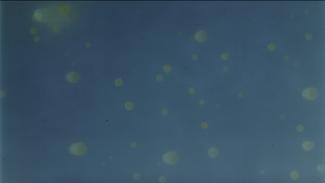
Hydromedia: Seeing With Water
Polluted oceans and melting glaciers, rainstorms and arid landscapes: all climate change processes are linked to water. Instead of merely documenting the climate catastrophe through documentary photography (and thereby even contributing to a paralysing sense of hopelessness), Hydromedia: Seeing with Water encourages artists to develop new and enticing protocols for rethinking and reshaping the relationship between humans and nature. In collaboration with environmentalists and scientists, new methods and tools are to be created during individual residencies at research sites in Antwerp (BE), Utrecht (NL) and Karlsruhe (DE). Twelve selected fellows will be part of this project co-funded by the E.U. (Creative Europe).
The third artist-in-residence program Hydromedia: Seeing With Water Karlsruhe proposes to sidestep conventional visual approaches to global warming. They invite established artists and designers to submit a proposal to develop innovative and hands-on tools during a one-month residency in April 2024 at the University of Arts and Design (HfG) Karlsruhe and in their own studio in the months after. You may extend an already existing practice or propose to make new work about the theme.
The guiding theme is water and the residency will be multidisciplinary. You explore your preferred angle to this theme within local settings. During the residency, you will also be offered the possibility to collaborate with (or get inspired by) the work of scientists and ecologists around water and ecological water management.
During their stay in Karlsruhe, artists will not only have time to investigate the local water situation, but develop and/or adjust their artistic practice to the site-specific conditions. HfG supplies plenty of workshops and art facilities. The Bio Design Lab at HfG, NABU (Naturschutzbund), ZKM (Center for Art and Media) and KIT (Institute for Technology Karlsruhe) will be close partners in this process to support the residents with information through workshops and lectures.
After the residency period, the selected artists will have some time to further develop their work, which will be shown in a local exhibition after the residency period in July 2024. After that, they will have more time to process the research period and exhibition experiences to prepare for a second exhibition in fall 2024 in Dresden.
In Karlsruhe, the selected resident artists will work in the upper Rhine area, which is characterised by the valley between the Black Forest and the Vosges. The Rhine is one of the busiest waterways in the world. Its estuaries in the Netherlands reach the North Sea, of which it is the most water-rich tributary. Karlsruhe is adjoining the Upper Rhine area. Underneath it flows an even more powerful stream, which is the largest groundwater reservoir in Europe. Nonetheless, this region suffers increasingly from drought due to the lack of sustainable water management. The resident artists are invited to investigate the reasons for this massive groundwater waste and discuss improvements for a sustainable use and smarter water drainage.
In the Upper Rhine Valley, small rivers full of groundwater rise from springs in the middle of the plain. Around
Karlsruhe, there are numerous quarry ponds that are filled with these ground waters and many arms of the Rhine, which are under nature protection. Through the straightening of the river, many floodplain forests have arisen. With its proximity to this river and its wide valley floor, the summers in the region of Karlsruhe are exceptionally warm. This leads to an unusual, nearly tropical climate, which is favourable for cultivation, but causes high levels of evaporation. What used to be the warmest region in Germany is becoming the hottest region and a climate crisis area. Dehydration as well as the groundwaters are hardly visible, therefore it is even more necessary to highlight these problems within the local communities.



